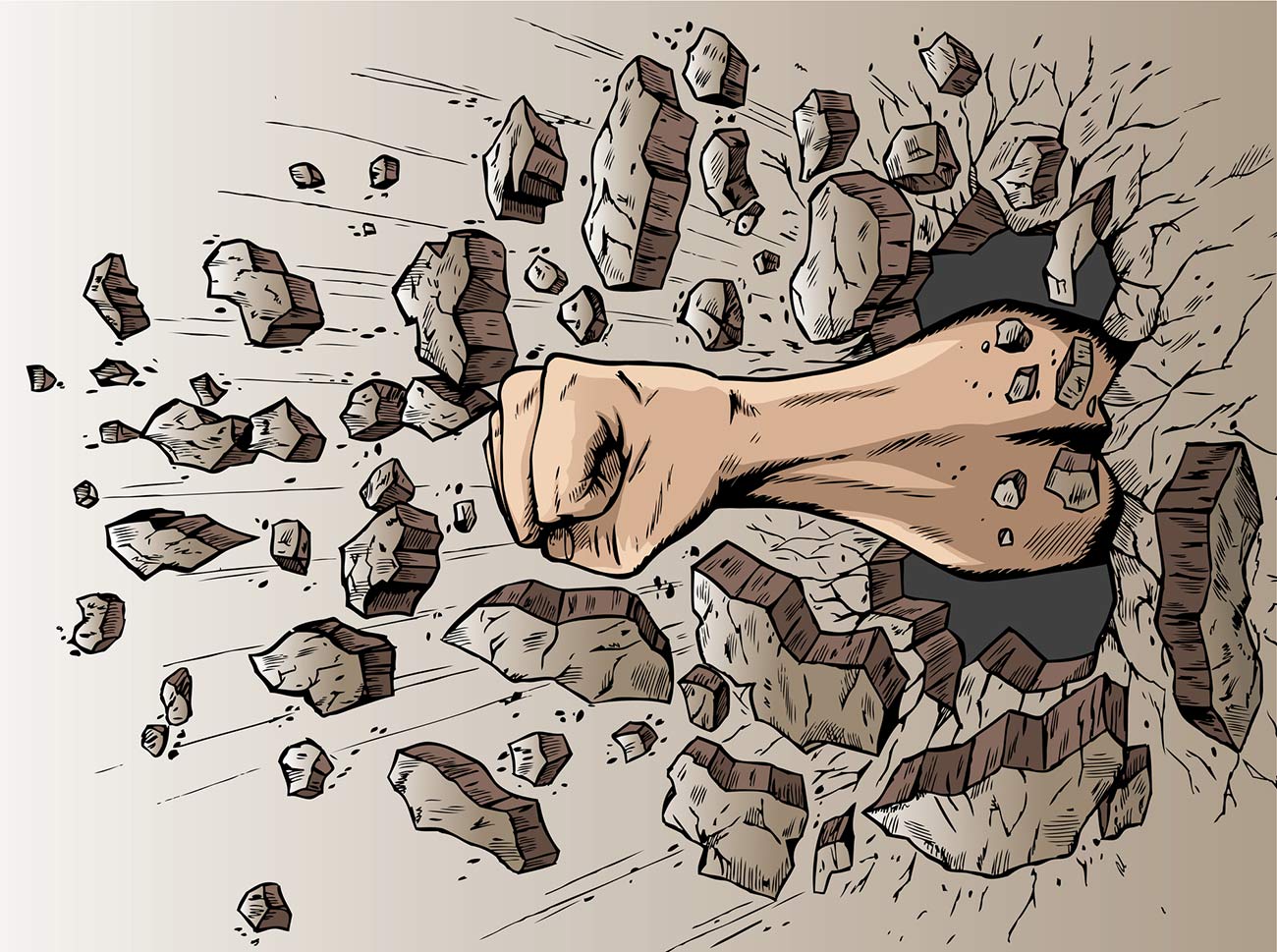
I remember setting up my first WordPress blog and then sitting back and thinking nervously to myself: this is going to be a lot of work.
It’s quite interesting to note that, while many new bloggers have trouble with technical aspects like plugins, getting a blog host, optimizing for Google, and so on, it’s actually the practical aspects like finding time to write blog posts that can cause the most stress.
And while I confess to being a big lazy procrastinator, I have managed to find a few little strategies that help me be a more efficient blogger. Actually, maybe the laziness is why I went looking for them!
In today’s post I’m going to try and help you figure out how to write more, and discuss why you’d even want to do that in the first place.
I hope it’s useful!
More is… more
Usually people tell you that less is more.
But when it comes to blogging it’s fascinating to note that there are some scenarios where it’s pretty true to say that more is more. More words, more posts, more links, etc.
For example, one of the backbones of my blogging strategy for the past few years has been to create long form content that is at least 3,500 words long.
People like Neil Patel, Glen Allsopp, etc. regularly extol the benefits of writing longer posts – they are statistically more likely to get more shares, likes, links, and subscribers.
And while there is no point in posting more if the content is ordinary, it’s good to learn how to write more if it means you can create longer blog posts that solve more problems, rank well on Google, and form a solid basis for your blog’s long term success.
So, let’s take a look.
How to write more
Here are a few strategies, ideas, and tools that have helped me write more over the years. We’ll begin with the more theoretically tips and then get on to some practical methods.
1. Have a solid set of goals with a timeline
It is really hard to sit down to research and write super-long articles if you don’t have a reason to do it. Knowing your short and long term goals and setting them to a timeline makes an enormous difference.
I made this error for years and years and it wasn’t until my older sister asked me over dinner what my goals were for the year. I ummmed and aahhhhed for so long and went away feeling embarrassed enough that I decided to sit down and figure out exactly what I wanted to do that year.
As Jim Rohn says in a piece on goal setting:
Goals are no place to waffle. They are no place to be vague. Ambiguous goals produce ambiguous results. Incomplete goals produce incomplete futures.
When you set a timeline for an outcome you start to work backwards and see all the small steps that you are going to need to get that. And, for us bloggers, that usually means writing more content in order to help more people.
2. Know exactly why you are doing it
This is closely related to the first point but is different enough that it needs its own mention because it has really helped a lot of bloggers I know.
I have personally found it crucial to have a reason to get out of bed each morning. For some people it is because they want to get better at a skill, for others it might be making more money to support your family or perhaps even a charity. Whatever your motivation, it can help a lot if you isolate it, make it clear, and then recall it regularly.
Not only does this keep your writing focused and careful, it also helps to support you emotionally when you are having down days where the writing doesn’t flow or you feel like progress isn’t happening fast enough. If you can recall to mind the stakeholders of your progress then it puts a fire under your butt.
3. Read, read, read, read, read
If you talk to almost any writer, author, journalist, or blogger about what helps them be good at what they do I can guarantee that a large portion of them will tell you to read more.
A lot of fantastic things happen when you read – especially when you go outside your comfort zone and look at various sources. First of all, your mind opens up to new ideas. Secondly, you start to discover new ways to express those ideas with your writing. Thirdly, your writing happens with less difficulty because the tones and styles of those authors start to absorb into you.
If you are having a period of writer’s block then one of the best things you can do is take a few hours to read. Look around at the best blogs in your niche, but then go further to excellent long form sources like the New Yorker, WIRED, Mother Jones, etc. and see if something sparks.
4. Find a place to write and go there… even if you can’t
Finding somewhere to write is extremely important. It doesn’t need to be National Library of the Czech Republic inspiring but it should be enough that it allows you to concentrate in the zone.
The most important thing, however, is that you actually go there and write. This is really easy for me to say – I don’t have kids or a “real” job to go to. And I imagine that if you’re a stay-at-home parent or someone trying to blog while raising a family then it could be extremely tricky. But it is also extremely important.
Try finding a cafe nearby or even a place in your house that is just for sitting and writing. Let your family know that for the time that you’re in there (it might only be 30 minutes a day) that you’re not to be disturbed. You can get a lot done in a short amount of time when it’s just one thing.
5. Start with an extraordinary headline and keep coming back to it
For me, it’s really important to have an excellent headline sorted before I start doing any of the actual content writing. This helps me to stay focused.
Actually, this was a tip I got from a lecturer in University who said that you should write your essay topic at the top of your screen and always have it in sight. Refer back to it again and again and it will help you stay on topic in every paragraph, sentence, etc. I found it useful and so applied it to blog writing.
There are so many tactics for writing a good headline or blog post title but here’s a little summary that should be enough for this article:
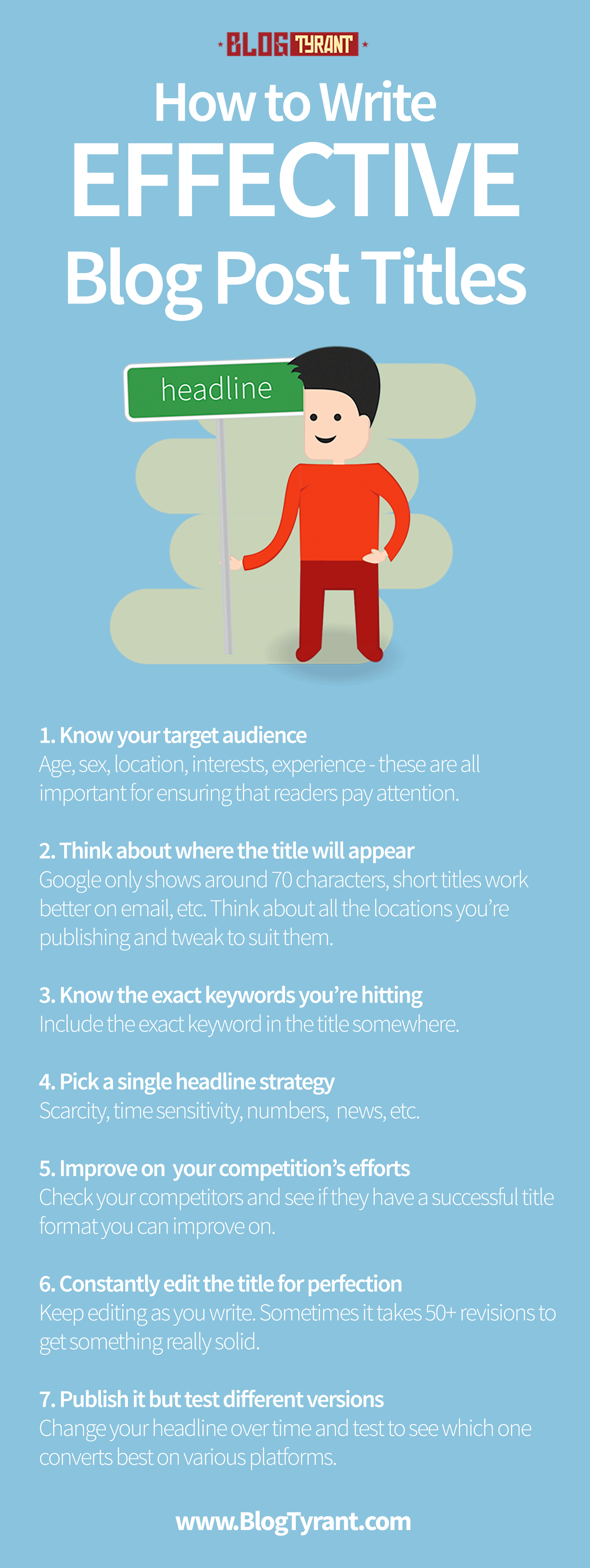
You can also look at the cheat-sheet made by Jon Morrow for some wonderful tips on how to write good headlines. It’s well worth the email submit.
The thing to remember here is that once you figure out the perfect headline/title for your blog post you often find that the content writing flows a lot easier. You know what question your are trying to answer, problem you are trying to solve, etc. and as such everything feels very consistent.
Try working a little longer on your headlines, even if you have to re-write them 50 times, and then see whether you find that the rest of the article comes out a lot quicker.
6. Develop an article structure that you can use as a base
Another little trick that has worked quite well for me is to come up with a post structure that I use for every article that has all the elements that I’ll use laid out in front of me. Here’s a rough look at what most posts on Blog Tyrant will look like:
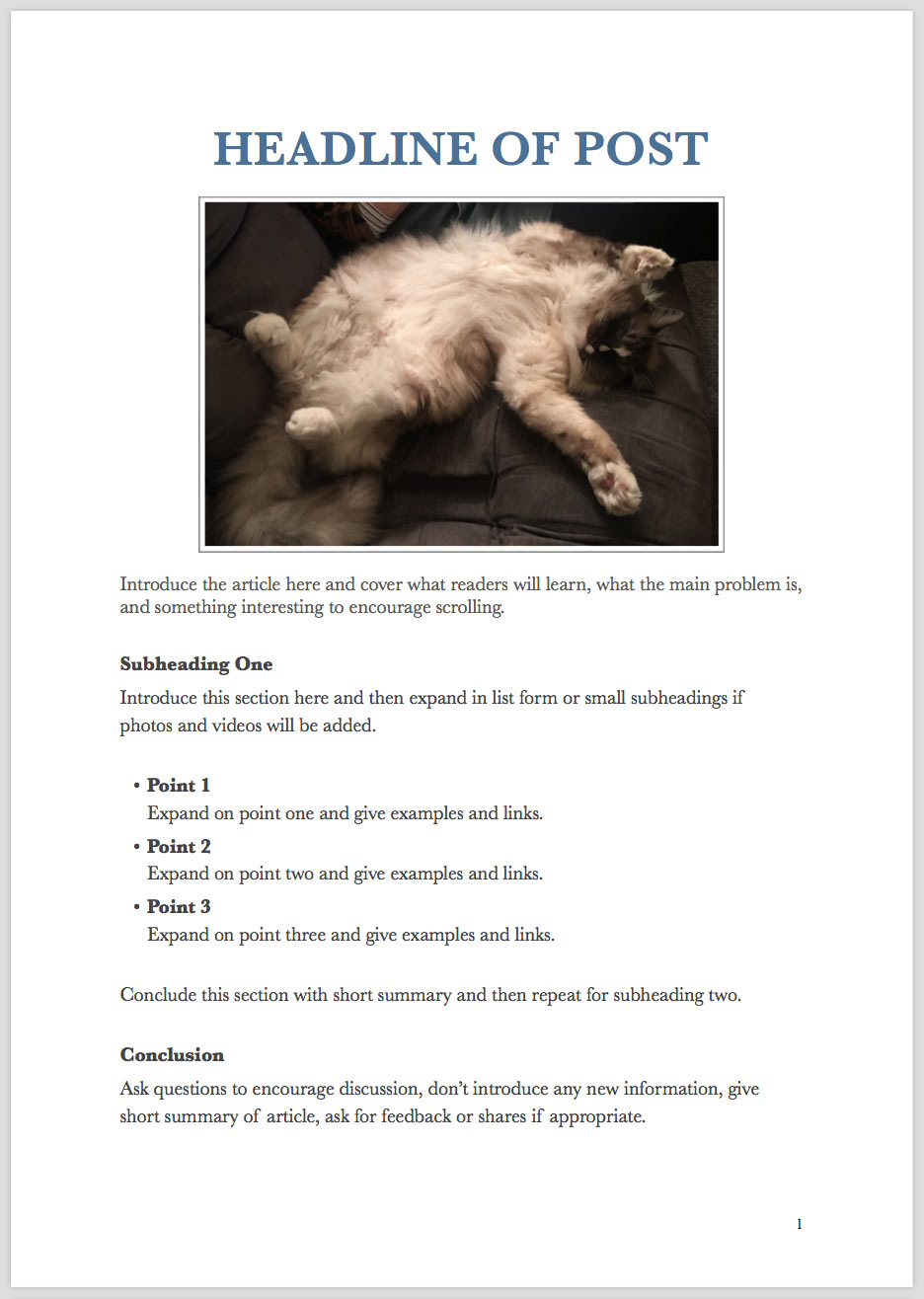
The reason I think this helps us to write more is because it gets you in to a pattern that you can repeat over and over again. As opposed to sitting down and trying to figure out the content, structure, layout, etc. you just sit down and start filling in the familiar format that you’re used to.
This takes a little bit of time and will be different depending on the theme you use, the niche you’re in, etc. so it’s a good idea to do a few tests and see what the majority of your traffic seems to like.
7. Get better at typing and editing
Another important consideration is the physical act of writing. For more of us, that means learning how to type faster and edit more efficiently.

The above is a screen shot of my best result for a typing speed test – I cheated and had a few goes! I am not very fast at typing when compared to people who have trained properly, but I have definitely improved a little bit over the years.
Quick interruption: I’d absolutely love to see your results! Click the link above to take the test and then post your score in the comments below.
These websites can also teach you how to type more efficiently by giving your courses, tools and information on the best keys to use, etc. I would put too much time in to this, but it’s good to see if you’re making any huge errors.
When it comes to editing, the best thing you can do is get some help so that you’re not left doing it all yourself. This is one of those areas that can take up a lot of valuable time that would be better spent working on the income-earning activities on your blog, or just writing more words, practicing.
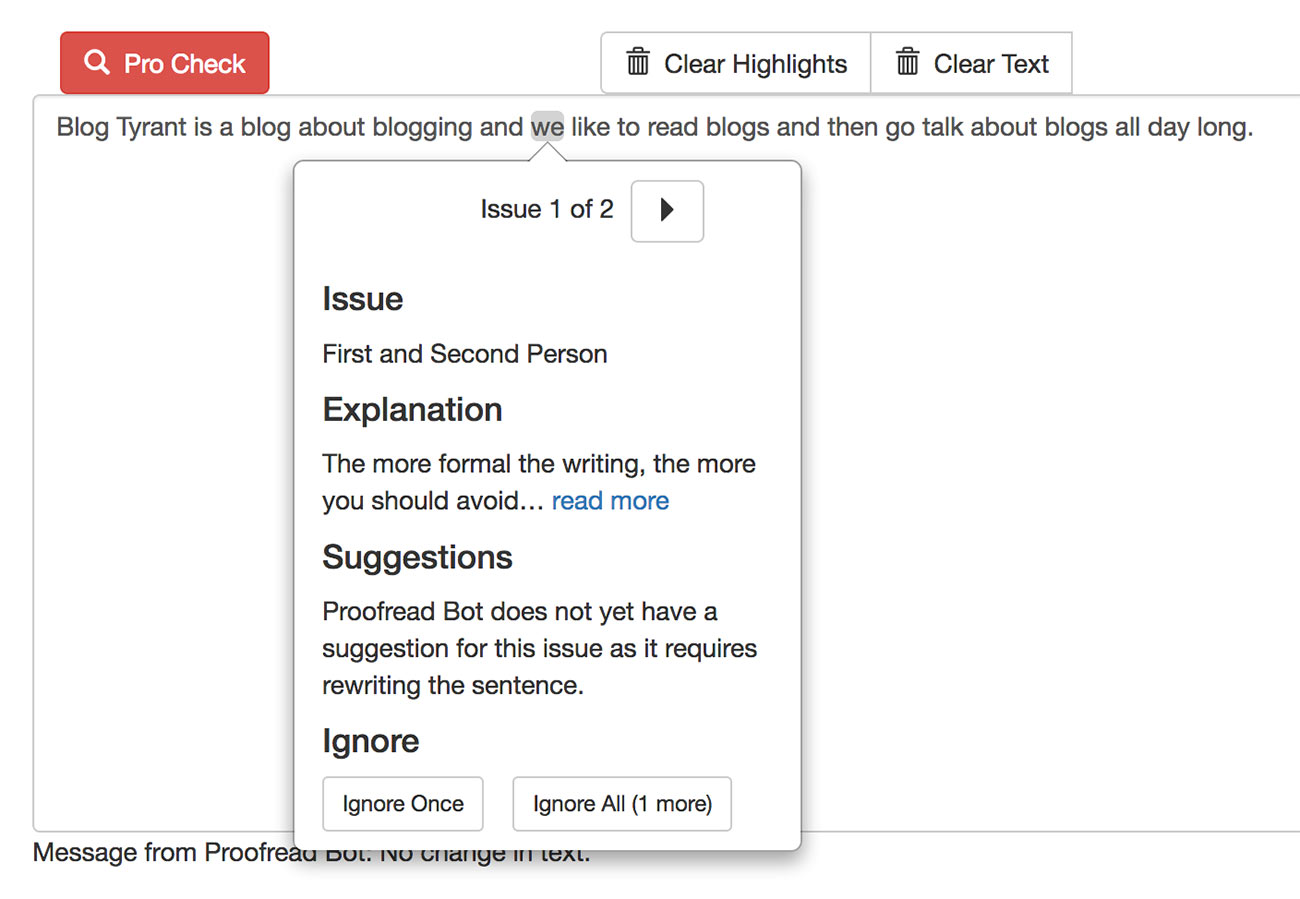
If you don’t want to pay anyone to help you edit, you can use tools like the Proofread Bot above that is actually really excellent at making suggestions for how you can improve your writing from a grammar, spelling, and readability point of view.
8. Use the Pomodoro technique for efficiency
The Pomodoro technique is one of many similar styles that can help you become more efficient by breaking your work routine up into small segments that are supposedly supposed to give you the right amount of work and the right amount of breaks.
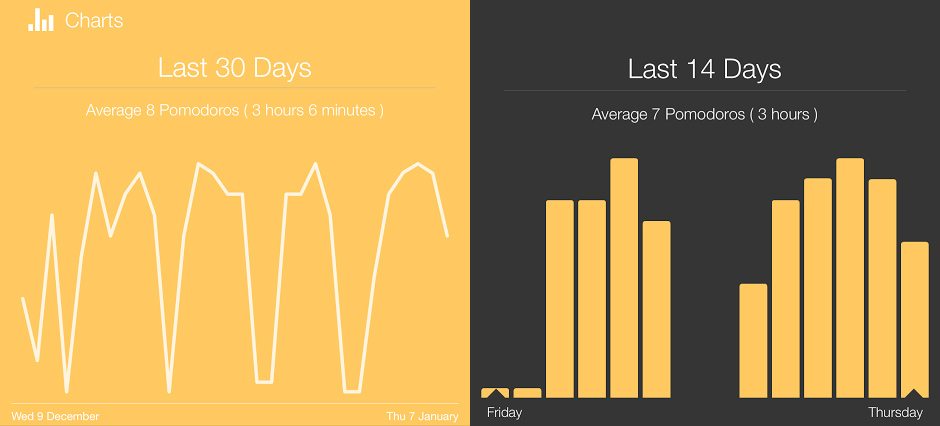
Glen over at ViperChill wrote a massive post about this and I couldn’t say anything better, so all I will do is encourage you to look at it a bit deeper and see if it works for you.
If it’s not Pomodoro, see if you can find a similar efficiency technique that will help you write more by keeping you focused on task and balanced between working and fatigue and inspiration.
9. Remove distractions
We’ve touched on this in the point about finding an inspiring place to go and write more, but this one is a little more hard-core. We’re going to actually try to remove distractions.

For example, the now-famous app, Flipd, is outstanding if you want to do things like hiding distracting programs, locking your phone for a certain amount of time, and so on. There’s another app called Forest that helps you stay focused and actually plants trees to reward you.
This is a really good idea if you’re perhaps working from home for the first time and are still adjusting to the freedom. It’s a really good way to help you move from one schedule into another.
What helped you to write more?
I’d really love to know if you think anything is missing from this article. Have you ever set out to try and find more time to write and had some luck making it happen? Have you ever increased your writing output and productivity over time? Please leave a comment below and let me know.
Top image: © Danomyte.
